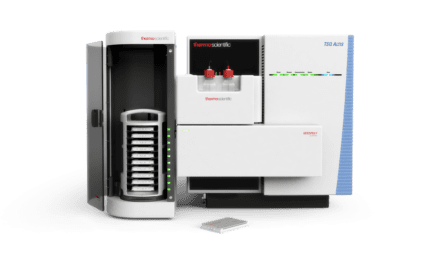Siemens Healthineers has launched its Enhanced Liver Fibrosis (ELF) Test in the U.S., providing broad clinical access for the minimally invasive prognostic tool.
The ELF Test is currently exclusive through collaborations with Labcorp and Quest Diagnostics. This is the first time the test is commercially available in the U.S., following De Novo marketing authorization from the U.S. Food and Drug Administration (FDA) in August 2021.
The ELF Test is a blood test that assesses prognosis in patients with advanced fibrosis (F3 or F4) due to non-alcoholic steatohepatitis (NASH), a type of non-alcoholic fatty liver disease (NAFLD) characterized by inflammation of the liver. NASH affects up to 20 million people in the U.S., and is predicted to be the leading indication for liver transplant by 2030 (1).
The ELF Test uses a routine blood sample and mathematical algorithm to generate a score that assesses the risk of disease progression. Clinicians can then utilize the score to understand the likelihood of progression to cirrhosis and other liver-related clinical events, and determine the appropriate interventions and lifestyle changes to help prevent further organ damage.
“The availability of the ELF Test at major national reference laboratories brings immediate broad access to patients and clinicians nationwide, providing the best possibility to change the landscape for NASH,” says Jennifer Zinn, head of diagnostics, North America at Siemens Healthineers. “At Siemens, our hope is that broad accessibility of the ELF Test will give clinicians and patients a valuable prognostic tool to help catch severe liver damage before it reaches that point. A scan or biopsy can pinpoint current liver damage, which doesn’t necessarily mean the patient will progress to severe disease. With the ELF Test, clinicians can pinpoint the likelihood of future progression, and prescribe the appropriate treatment and lifestyle changes to hopefully mitigate future damage.”
NASH is often called a ”silent killer,” since patients typically don’t exhibit symptoms until the disease has progressed to the point of serious organ damage. Now, with widespread availability of the ELF Test at national reference laboratories, clinicians have access to a convenient and minimally-invasive prognostic tool, which can be tested with a simple routine blood draw.
“Now, there is no excuse not to evaluate the prognosis of your patients that have advanced fibrosis due to NASH because this test will become available, hopefully, in all labs in the United States – I see the use for ELF in all of my patients, in combination with other noninvasive tests, and that’s how I’d recommend it to other gastroenterologists and hepatologists,” says Mazen Noureddin, MD, of Cedars-Sinai Medical Center in Los Angeles.
References
- Estes, C,, Razavi, H., Loomba, R., et al. (2018). Modeling the epidemic of nonalcoholic fatty liver disease demonstrates an exponential increase in burden of disease. Hepatology. 67(1):123-33.
Feature image: The ELF Test is a blood test that assesses prognosis in patients with advanced fibrosis (F3 or F4) due to non-alcoholic steatohepatitis (NASH), a type of non-alcoholic fatty liver disease (NAFLD) characterized by inflammation of the liver. NASH affects up to 20 million people in the U.S., and is predicted to be the leading indication for liver transplant by 2030 (1). Photo: Siemens Healthineers





